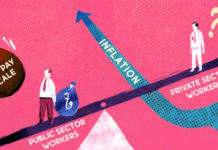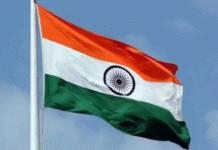Latif Siddique cannot be punished only for his remarks, he must also be penalised for his misdeeds to ensure good governance
It took only seven days to take action against former post, telecommunications, and information technology minister Abdul Latif Siddique, who was also a senior presidium member of the Awami League. Latif’s callous remarks on Hajj and the prime minister’s son Sajib Wazed Joy in New York on September 27 drew huge criticism from within our country.
Prime Minister Sheikh Hasina did not wait for a single moment in taking action against him, after she heard the news upon returning from London. She formally announced on October 3 that the beleaguered Latif would lose his job.
Latif Siddique lost his job for making anti-religious comments which hurt the sentiments of millions of Bangladeshis. The prime minister herself, at a press conference, said Latif himself was at fault for his remarks, and made the political decision to remove him from the post.
Fair enough. But, what is intriguing is that the prime minister’s office conducted an investigation on the textiles and jute ministry, in which Latif was a minister during the last tenure of the government. The investigation found irregularities when Latif was at the helm of the ministry. Hasina herself recently instructed textile ministry officials to undo the failed privatisation process under which several mills and factories were privatised during his tenure as textiles minister.
What message is the prime minister trying to send? Is she signalling that one cannot get away with making any indiscreet comment, but he or she will not be taken to task for any misdeeds? It is evident from the prime minister’s comments about undoing the privatisation process that Latif Siddique had indeed engaged in some irregular activities.
But, to the surprise of many, the prime minister actually removed him for his remarks. One can call it “natural justice,” but it is actually a serious failure in governance.
Latif Siddique cannot be punished only for his remarks, he must also be penalised for his misdeeds to ensure that good governance is being carried out. His remarks hurt the sentiments of many, but his misdeeds harmed the further development of Bangladesh, and above all, his offence might have encouraged others to function in a similar fashion.
In another interesting development, the Ministry of Liberation War Affairs cancelled the freedom fighter certificates of Health Secretary Neaz Uddin Mia and Public Service Commission Secretary AKM Amir Hossain on the grounds of forgery.
The ministry cancelled the certificates of the top bureaucrats following the recommendations set by the Anti Corruption Commission, as the anti-graft body had found that the officials in question received the certificates by providing false information.
The ACC also requested the Ministry of Public Administration to take departmental action against the officials. Subsequently, the Public Administration Ministry show-caused them to explain their positions.
It was proven that they had lied, provided false information, and resorted to forgery to get the certificates; otherwise, their certificates would not have been cancelled. But even then, they are still the top administrative officials of two very important ministries.
It is understandable that before taking any action against any bureaucrat, a certain procedure needs to be followed. Having said that, as the allegations have been proven, the officials should be removed from their posts.
What is interesting is that the decision to cancel the certificates of the secretaries had been made on September 14, but Health Secretary Neaz Uddin went to New York as a member of Prime Minister Sheikh Hasina’s delegation to attend the 69th UN General Assembly on September 18.
The AL had led the liberation war through which we earned our independence. It is ironic that the health secretary – who had been proven to not have been a freedom fighter, but had collected a fake freedom fighter certificate – accompanied the prime minister, the current leader of the AL. It is an insult to all the freedom fighters who sacrificed their lives to make our country independent.
To make a long story short, we all understand the importance of establishing good governance, but in practice, we often ignore it. Life is full of choices, but in most of the cases, we do what we want to do, not what we should do. It is up to the government to make a decision – will it do the things that it should do, or the things it wants to do?
Source: Dhaka Tribune










